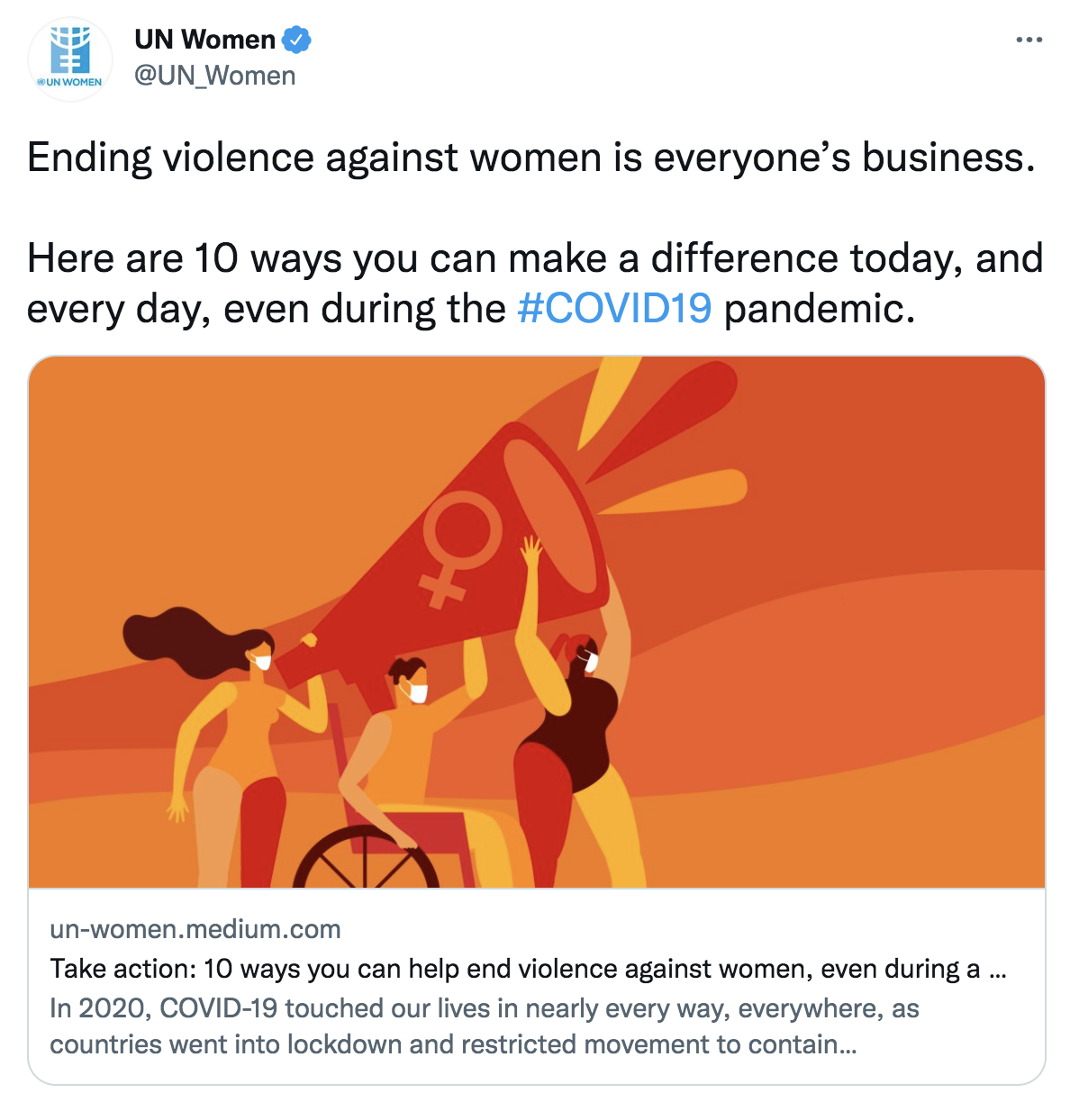By Polina Smith
The fight for gender equality seems to be a fight that never ends, and the unfortunate reality is that women all over the world are still treated as second-class citizens.
But there are people fighting for women’s rights on small and large scales, from feminist activists to government leaders. Recognizing their unique position to tackle the problem on a global scale, the United Nations has gone big launching new advocacy programs, campaigns and funding initiatives. Through UN Women, it is changing the game with fresh approaches to get to gender equity using top political leaders, popular artists, celebrities and social media influencers - and it’s working!
Meghan Markle, Oprah Winfrey, Michelle Obama, Anne Hathaway, and Nicole Kidman are some of the high-profile celebrities and feminist leaders who have delivered seismically powerful speeches at UN Women forums in recent years. Recognizing the need to involve men and boys in the movement as allies for #GenderEquality, the HeForShe campaign was launched with Emma Watson in a speech that went viral and got the conversation going around the world. It’s been a welcome development to hear the UN Secretary General, António Guterres, making bold feminist statements and using his global megaphone to advance gender rights.
Led by Sima Bahous as UN Women Chief, the organization is moving boldly forward on many fronts. They are engaged in advocacy and leadership for crisis needs, such as their work to support Afghan women and girls, as well as simultaneously mapping out long-game strategies to advance gender equity globally. Their Generation Equality Forum took place in Paris from June 30 to July 2, 2021, gathering changemakers to plot out major plans and funding strategies. Convened by UN Women and co-hosted by French and Mexican governments, the forum brought nearly 50,000 people together to set in action a five-year plan to invest in programs and policies that advance women’s rights. Led by six Action Coalitions and the Compact on Women, Peace and Security, and Humanitarian Action, the forum marks the beginning of this journey that aims to create immense progress by 2026.
Seven of the major factors discussed at the forum include ending gender-based violence, upholding economic justice, support for reproductive rights and bodily autonomy, investing in feminist movements, encouraging women to join the fight for the climate, fostering feminist technology and innovation, and putting women at the heart of humanitarian action. Read more about these seven steps here.
UN Women has upped their social media game and has been using it skillfully in highly creative ways to further drive their messages in the U.S. and around the globe. You can follow UN Women on social media and watch speeches and videos on their YouTube channel to stay up to date on their latest campaigns.
The gender pay gap in labor force participation has not changed in 30 years, sitting at a whopping 31%. Women must be compensated for their work; women spend triple the amount of time on unpaid labor compared to men. Supporting organizations that work with local girls and women, teaching entrepreneurship and financial literacy, is a good way to drive change and progress.
Although there are things we can do as individuals to help end gender-based violence, governments must also implement, strengthen, and finance laws and policies against gender-based violence. Women’s rights organizations must also receive more funding to help girls and women escape abusive situations.
The people affected most by climate change are women and girls in poverty, and they face greater health and safety risks as a result. Feminist action for climate justice is essential, as it enables women to lead the transition into a green economy and allows space for the marginalized to enact change.
Remember that, by keeping the above steps in mind, you can make a difference. Céline Bonnaire, Executive Director of the Kering Foundation, said: “I hope that each participant will come away from the Forum knowing what change they can implement the next day to help achieve gender equality.” We hope so, too.
Polina Smith is a writer and media producer with Seismic Sisters. Her creative work and collaborations are focused on the intersection of art and social justice.




